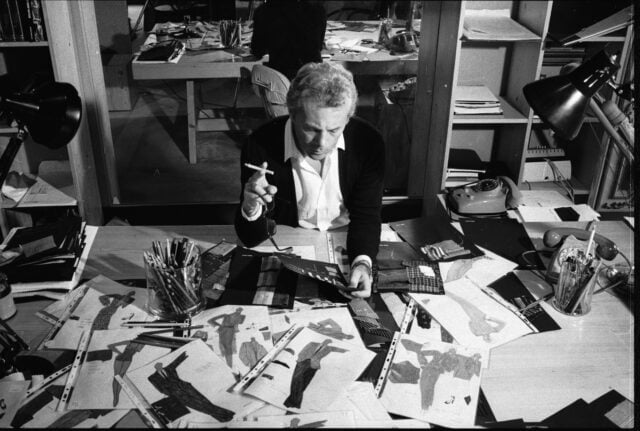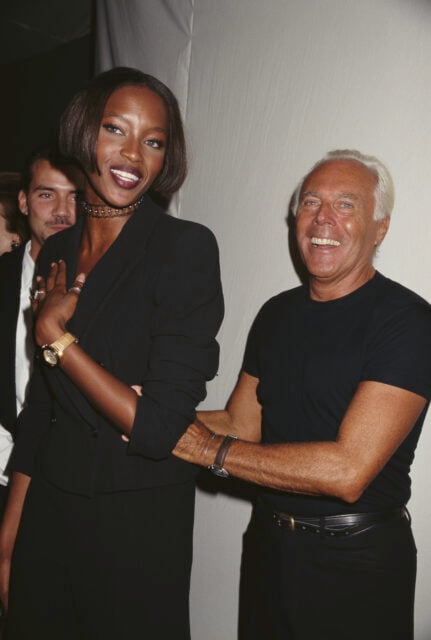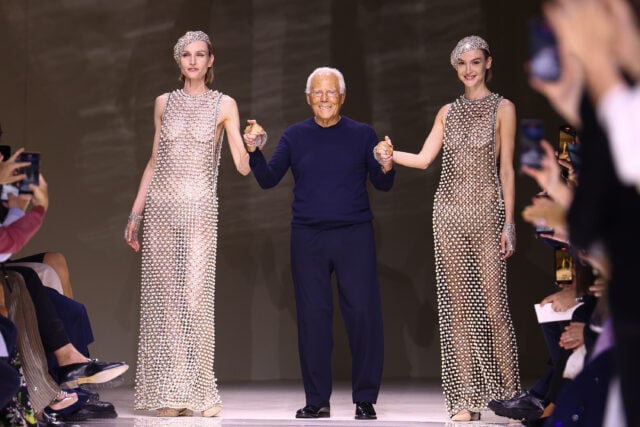Giorgio Armani, the Italian designer who reshaped the way the world dresses and turned his name into a global empire, has died at 91. His company announced Thursday that he passed away peacefully, surrounded by loved ones.
The Armani Group called him its “creator, founder, and tireless driving force,” noting that he worked until his final days.
Reinventing Style
Armani’s vision was synonymous with understated elegance. He stripped away excess and brought a sense of ease to tailoring that changed both men’s and women’s wardrobes. His softly structured suits, particularly the women’s power suit, became a defining silhouette of the late 20th century.
Hollywood helped propel Armani to international fame. Diane Keaton wore his blazer-and-skirt ensemble to the 1978 Oscars, signaling a shift in red carpet fashion. Just two years later, Richard Gere’s sleek Armani suits in American Gigolo cemented the brand as a symbol of sophistication.
Building an Empire
What began as a clothing line in 1975 soon expanded into a lifestyle empire. Armani’s name now stretches across haute couture, fragrance, cosmetics, eyewear, home furnishings, even luxury hotels. Forbes valued his fortune at $12.1 billion this year, ranking him among the richest designers in history.
Still, Armani described himself as a perfectionist who was “never satisfied,” constantly refining his work. His commitment to design was so consuming that his absence from Milan Men’s Fashion Week this June, his first missed show in nearly five decades, sparked concern about his health.

Tributes from Fashion and Beyond
Donatella Versace called Armani a giant who “made history and will be remembered forever.” Vogue’s Anna Wintour praised his ability to understand both power and elegance, saying he dressed women in a way that reflected their ambitions.
Italy’s prime minister Giorgia Meloni called him “an icon, a tireless worker, a symbol of the best of Italy,” while deputy prime minister Matteo Salvini honored him as a master of style admired across the globe.

Champion of Change
Armani wasn’t just shaping aesthetics, he also pushed industry standards forward. In 2006, following the death of model Ana Carolina Reston, he became one of the first designers to ban underweight models from his runway. His stance marked a turning point in fashion’s conversation about health and body image.
A Lasting Legacy
Known to Italians as Re Giorgio (“King Giorgio”), Armani left an imprint on culture far beyond clothing. His work touched film, music, sports, and design, weaving his brand into everyday life.

While his funeral will be private, his Milan headquarters, the Teatro Armani, will open its doors this weekend for the public to pay respects.
Armani’s clean lines and sharp vision didn’t just define an era; they set the stage for how the world would continue to imagine elegance. His influence will linger long after the lights dim on the runway.


